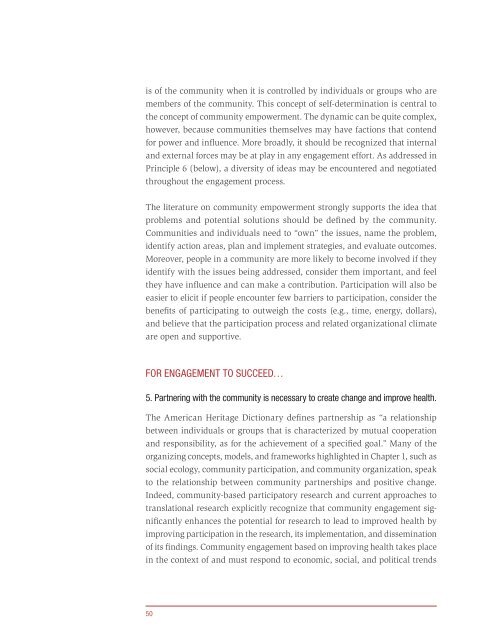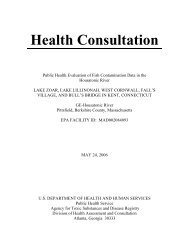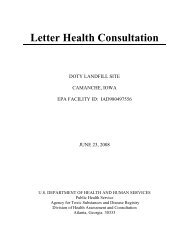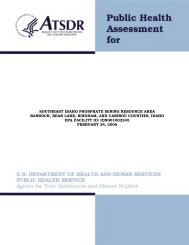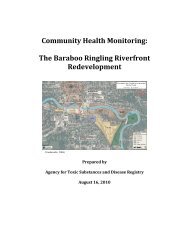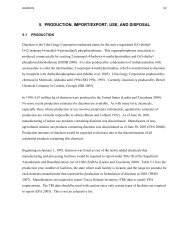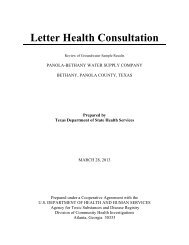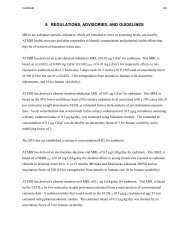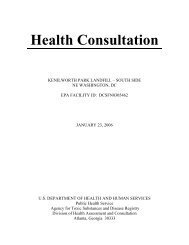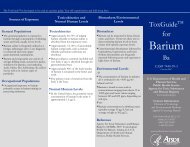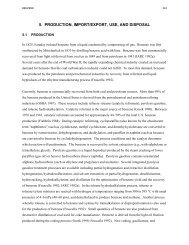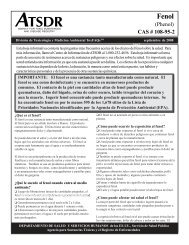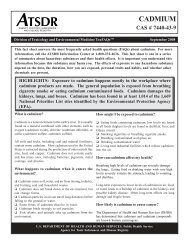Principles of Community Engagement (Second Edition)
Principles of Community Engagement (Second Edition)
Principles of Community Engagement (Second Edition)
You also want an ePaper? Increase the reach of your titles
YUMPU automatically turns print PDFs into web optimized ePapers that Google loves.
is <strong>of</strong> the community when it is controlled by individuals or groups who are<br />
members <strong>of</strong> the community This concept <strong>of</strong> self-determination is central to<br />
the concept <strong>of</strong> community empowerment The dynamic can be quite complex,<br />
however, because communities themselves may have factions that contend<br />
for power and influence More broadly, it should be recognized that internal<br />
and external forces may be at play in any engagement effort As addressed in<br />
Principle 6 (below), a diversity <strong>of</strong> ideas may be encountered and negotiated<br />
throughout the engagement process<br />
The literature on community empowerment strongly supports the idea that<br />
problems and potential solutions should be defined by the community<br />
Communities and individuals need to “own” the issues, name the problem,<br />
identify action areas, plan and implement strategies, and evaluate outcomes<br />
Moreover, people in a community are more likely to become involved if they<br />
identify with the issues being addressed, consider them important, and feel<br />
they have influence and can make a contribution Participation will also be<br />
easier to elicit if people encounter few barriers to participation, consider the<br />
benefits <strong>of</strong> participating to outweigh the costs (e g , time, energy, dollars),<br />
and believe that the participation process and related organizational climate<br />
are open and supportive<br />
FOR ENGAGEMENT TO SUCCEED…<br />
5. Partnering with the community is necessary to create change and improve health.<br />
The American Heritage Dictionary defines partnership as “a relationship<br />
between individuals or groups that is characterized by mutual cooperation<br />
and responsibility, as for the achievement <strong>of</strong> a specified goal ” Many <strong>of</strong> the<br />
organizing concepts, models, and frameworks highlighted in Chapter 1, such as<br />
social ecology, community participation, and community organization, speak<br />
to the relationship between community partnerships and positive change<br />
Indeed, community-based participatory research and current approaches to<br />
translational research explicitly recognize that community engagement significantly<br />
enhances the potential for research to lead to improved health by<br />
improving participation in the research, its implementation, and dissemination<br />
<strong>of</strong> its findings <strong>Community</strong> engagement based on improving health takes place<br />
in the context <strong>of</strong> and must respond to economic, social, and political trends<br />
50


